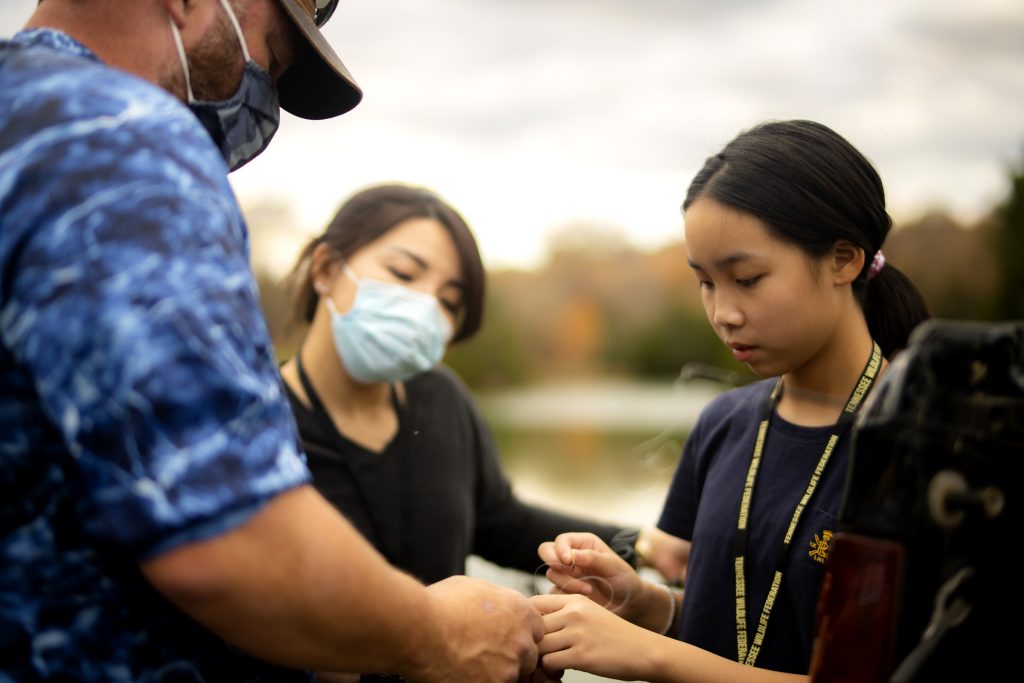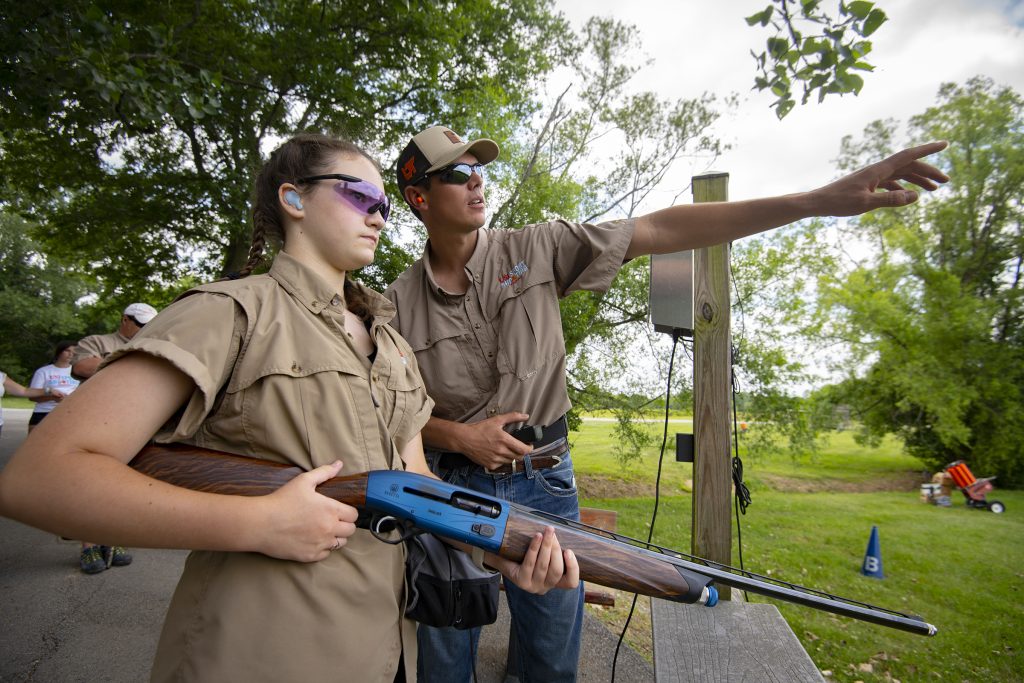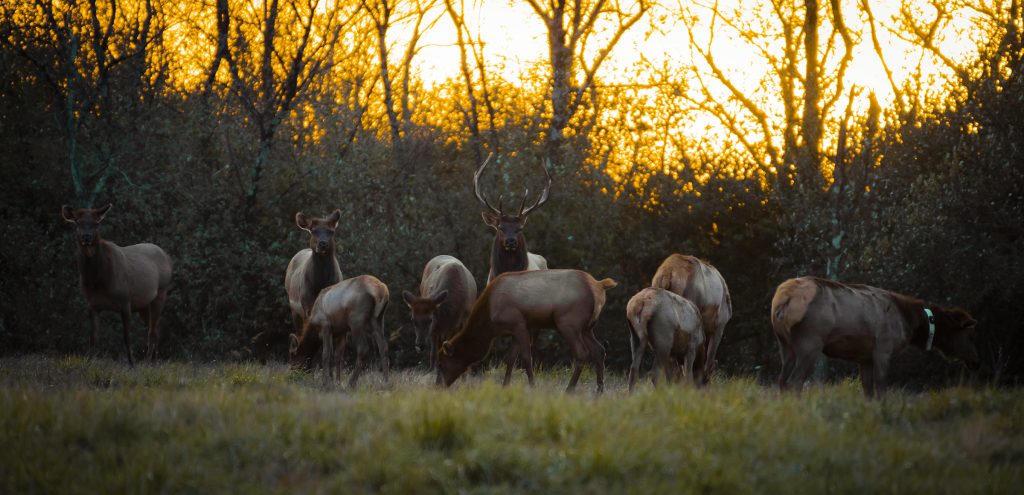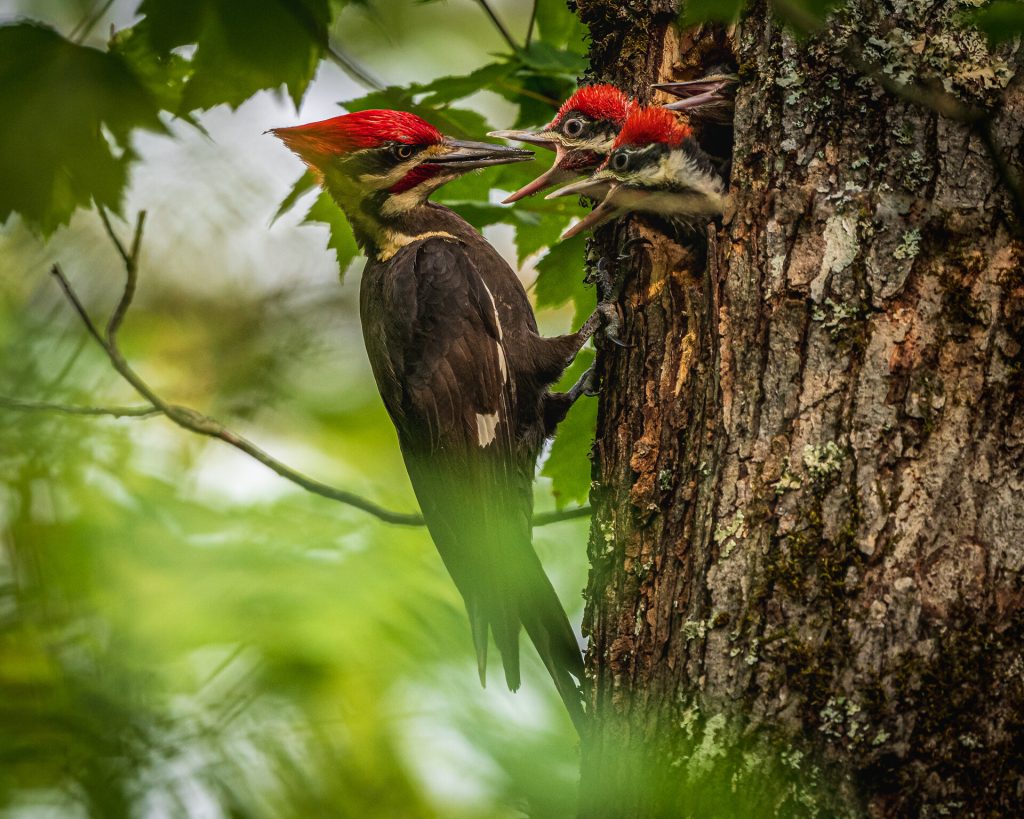Tennessee Wildlife Federation is on a mission to protect the wildlife, water, and resources of the Volunteer State
Knoxville native Bruce Fox’s introduction to the Tennessee Wildlife Federation came to him at the perfect time. An avid hunter and outdoorsman with a deep connection to the outdoors, Fox was approached by the leadership of the organization to join its ranks of advisory-level supporters, and he knew he needed to take the leap. “I agreed to meet with them because I knew the word wildlife meant something to me,” he says. He drove to Nashville for the next board meeting and listened as they talked shop about the active work of this long-standing wildlife organization. The work spoke to him, he says, and he jumped in full force, ready to do his part. That was about seven years ago. Today, Fox sits as the organization’s board chairman.
One of the things that makes Fox feel so engaged is the organization’s history of success in making positive change for the natural resources of Tennessee. Look up any conservation or wildlife effort in the state and you’re sure to find the Tennessee Wildlife Federation as a key player. “We are an organization that does good things for what you care about,” Fox says.
The organization fulfills its mission through work in three key arenas: policy, outreach and engagement, and habitat stewardship. “It’s our job to give a voice to the resources that don’t have a voice,” says Mike Butler, the organization’s CEO, “and to represent the interests of those people that care about the outdoors.”
Kendall McCarter, the organization’s Chief Development Officer, calls the TWF’s history rich with success in some of “the most important conservation and environmental policies and happenings for the last 75 years.” Over the course of its lifetime, the Tennessee Wildlife Federation has played a critical role in the passage of the Water Pollution Control Act of 1971, the reintroduction of elk to Tennessee in 2000, and the Right to Hunt and Fish Amendment of 2010, among many others.
And while the breadth of what this organization does can be tough for any one person to wrap their head around, this breadth is exactly what has led to its success. “We’re here for the wildlife, water, and wild places of Tennessee,” McCarter says. “And if you care about those things then take a look at our work.”

Policy Makes an Impact
Most natural resources in the state of Tennessee are publicly owned, like air, water, wildlife, and some lands, Butler says, which is why the public policy work of TWF is critical to maintaining and preserving them. The organization advocates both in Nashville—where it’s headquartered—and in Washington DC for policy changes.
One of Tennessee Wildlife Federation’s most recent policy initiatives is Tennessee Clean. The premise of the policy is to address litter in a comprehensive way across the state. Butler says the organization became interested in this work after reading through research that showed the level of micro-plastics in the Tennessee River to be far greater than that of the Yangtze in China. “It really got our attention,” he says. “And as a result of that we started looking at what was going on with plastics in the environment.”
The more they looked, the more they realized that this effort wasn’t just about plastic; it was about litter as a whole. So, they began researching how to tackle the problem. “If you’re going to be about conservation and you have a concern and value for our great outdoors, one of the first things that we have to do is take care of our garbage as individual citizens,” Butler says. And so, Tennessee Clean was born, following suit with other states which have put in serious efforts to clean their state up.
“The state needs to set policy goals around addressing the litter problem,” Butler says. “And then let’s leverage the private market to develop creative solutions to fix it.” The act would establish a commission made up of representatives appointed by the governor and a speaker that would represent private industries. The commission would establish goals focused on litter and a timeframe in which to achieve them.
“We had a pretty good win this last year at the legislative level getting this moving and getting it in the right committee,” Fox says. “We’ve got a lot of work cut out for us to move it forward and to get it passed.”
The organization’s leadership anticipates pushback, particularly from convenience stores where the use of plastic bags is a critical part of the store process, but Fox believes they’re ready. And he believes that corporations and businesses will be integral parts of the solution.
Tennessee Clean is just one of the many initiatives the organization is presently working on. A quick look at their website and you’ll see dozens of opportunities for engagement in their policy work, from the Recovering America’s Wildlife Act—which aims to support the management of non-game species—to the Share our Rivers Coalition—which aims to create management plans for specific waterways that suffer from overcrowding by commercial canoe and kayak rental services. All of the work is possible because of the public’s support.

The Next Generation of Conservationists
As Butler says, in order to have a sound public policy program, you also must be an advocate, which is where TWF’s outreach and education come in. TWF programs encourage citizens to engage and become involved in the outdoors, “tapping into the interests,” Butler says, to learn more about it.
This means providing opportunities to steward the next generation along. For younger generations, it means opening doors for them to find new interests and immerse them in new experiences. And TWF tackles this in great strides.
Passionate about this effort, Fox says youth find themselves with programs that provide them not only a strong connection to the land, but a place to build camaraderie and confidence.
The organization’s Scholastic Clay Target Program, for example, is one of the most successful in the country, Fox says. It provides students in grade 9 through 12 with opportunities to participate in trap, skeet, and sporting clays shooting programs, culminating with a seven-day-long state meet in Nashville each year. This year, nearly 2,000 students—about 30 percent of which were females—participated in the state meet.
The TWF also provides opportunities through its Hunting and Fishing Academy, which began in 2018, to take groups of 10 to 20 beginner hunters and anglers out at a time to learn to hunt and fish with what Fox calls the state’s “master hunters and fishers.” This program is an important one to these outdoor sports. According to TWF, for every 10 active sportsmen, there are only seven who are growing to take their place.
“I think there’s a realization by us old guys that if we don’t do this, what we’ve grown up enjoying will disappear. Society will forget about hunting and fishing,” Fox says, who has participated in the program as an instructor.
The academy ensures these sports continue with the younger generations and provides a way for older generations to share firsthand their knowledge of hunting, fishing, and firearms safety.
And then there are programs like Hunters for the Hungry, a long-standing program dating back to the late ‘90s, which builds a new level of commitment to the outdoors for those already immersed in the sporting world. Through this program, the organization staff connects with hunters to donate excess venison from their white-tailed deer season hunts to feed the hungry at food banks and soup kitchens.
If a hunter walks into a participating local butcher’s shop with meat from their recent trip, a participating butcher will ask if they would be willing to donate a pound of ground to help feed hungry families. Many times, though, that one pound quickly becomes more. “I think people understood this past season that there are a lot of families in need, that things were hard. Our donated poundage went way up.” Fox says more than 550,000 pounds of meat were donated just last year through this program, “25 percent higher than our prior years,” he adds.
All of these programs, along with other outreach and education efforts, combine to create a different level of engagement across the state, meeting citizens where they’re at and encouraging them to participate in ways that speak to them directly.

Efforts in Conservation
Engaging individuals in the environment is critical, but it can only happen if that environment exists to engage them in, Butler says, and that’s where the third leg of this organization comes into play: the Habitat Conservation program.
“Our stewardship work really focuses on habitat,” Butler says. “We restore habitat and [partner with] other organizations and agencies [to] restore wetlands, streams and different forests. Those activities maintain the quality and the health and abundance of our waters and lands and our wildlife and fish that live in those.”
To date, roughly 13,000 acres of habitat has been either conserved or restored as a result of the TWF’s work, partnering with both private landowners and public agencies in the program.
One of the larger projects the organization is currently working on is the management of the invasive species of Asian carp. Look up Asian carp videos online, and you’re sure to find plenty with fishermen driving down waterways in boats with shields out front to keep from being severely injured by these jumping giants. The sound of the motors and propellers cause the fish to jump wildly from the water into the path of oncoming boaters. This makes the water virtually unusable for recreation and causes property values to plummet.
Just this year, TWF led the charge to secure a $25 million federal grant to fight the Asian carp problem. “Think about Tennessee and what our waterways mean to the state from one end to the other,” Fox says. “We’ve got a lot of rivers, creeks, lakes that fund a lot of recreational activities.”
Killing off the fish is not an option, so with the grant funding, the organization and other partners plan to stop the fish from coming through the locks and further upstream. “And then we’re trying to find commercial uses for them so that commercial fishermen with these big seine nets will actually be able to make a profit from scooping these things up while reducing the population.”

Engagement is Key
Aside from the fact that each staff and board member has a sincere connection to Tennessee’s great outdoors, the piece that keeps coming up in all of these conversations with staff and board is engagement. The Tennessee Wildlife Federation seems to have this down to a science.
While events are indeed part of the organization’s development model, more important, Fox says, are the opportunities to engage one-on-one with like-minded individuals, such as hunters and fishermen and anyone else invested in connecting with the land. McCarter explains: “We specifically brought a relationship-based fundraising model to the organization. We sit down with donors one by one and talk about how they can make an impact.” This, he adds, can fundamentally change an organization.
With a staff of just 23 across the state, TWF is breaking down barriers to nonprofit development alongside the barriers it is breaking down in connecting people to place. At a recent event held at the University of Tennessee’s Lauricella Center next to Neyland Stadium (see Cityview’s November/December 2021 issue), Fox walked around a room of roughly 80 invited guests to engage them in conversation about the work of the Tennessee Wildlife Federation across not just East Tennessee, but the state. Each guest was invited strategically because of their commitment to the outdoors in one way, shape, or form.
It’s this commitment to understanding its audience, it seems, that is a game-changer for the TWF. The people are what make it happen. People like Butler and McCarter and their staff working daily in this fight for the wild alongside policy makers and donors. People like the thousands of volunteers who engage with the organization yearly through programs and conservation work in the blinds or on the water. And people like Fox, who live their lives committed to their roles as stewards of the great outdoors.
As Fox looks back on his time on the board and ahead to the incredible amount of work to come, he feels empowered by the work he’s been a part of, but also the decades of work that came before him. “It just excites me with the breadth and scope of what we’re doing and how we’re accomplishing it and what we’re taking on to fight litter and fight Asian carp and preserve habitat,” he says. “We’re taking on the big issues, and we’re being successful with it.”
To learn more about the many initiatives of the Tennessee Wildlife Federation and its work across the state, visit www.tnwf.org.
